Data quality importance
Data has become a key element in the digital transformation of this world. Making the best decisions and optimizing business processes can only be done with up-to-date master data. Conversely, outdated, incomplete, and incorrect data will lead to inefficient work and costly mistakes.
Up-to-date master data has many benefits for many aspects of running your business. Consider reporting for which high-quality data will generate a much more accurate result and increase trust in your reports. To reach this goal, the master data has to meet certain conditions and satisfy rules that define the data quality. These conditions must be checked consistently because we live in an ever-changing world, and business rules are also evolving.
SAP released Data Quality Management (DQM) as the tool to define, implement, monitor, and improve the data quality of your master data. DQM is a component that is part of the SAP Master Data Governance (MDG) solution. DQM is available for Materials as of S/4HANA 1809 and for Customers and Vendors since the S/4HANA 1909 release.
How will DQM boost your data quality?
Define quality
Define business rules based on company values and requirements. DQM allows business users to manually define quality rules or let the system determine quality rules via Rule Mining of the master data in your system.
Implement quality
Once the rules got implemented by IT and approved by the business, they can be applied to all entry points of master data maintenance.
Monitor quality
DQM has the option to perform regular evaluation runs on the data in your system. The outcome of these runs will show your data quality trend. You will get instant insight into master data that is not compliant with your defined data quality rules.
Improve quality
The monitoring result starts the remediation activity for non-compliant master data with SAP MDG Single or Mass Processing.
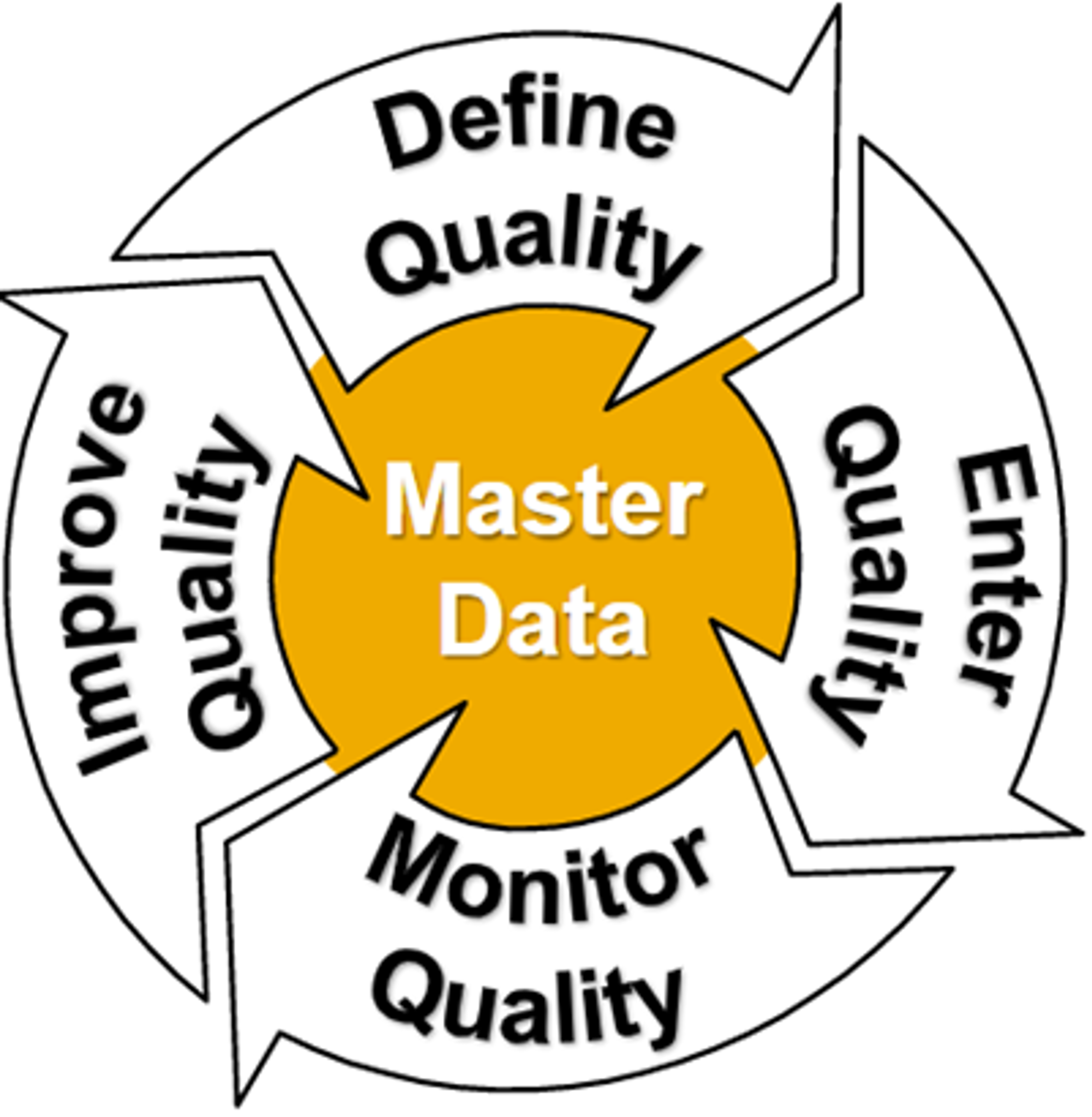
How to define Data Quality?
As mentioned earlier, business users can manually define data quality rules, or the rule mining feature can generate them.
All of this happens in the rules repository Fiori application. An application where Business and IT work together to search, define, implement and approve business rules which define data quality for the organization. In this rules repository, metadata of the rules (Business Reason, Rule Owner…) is gathered, and the actual rule implementation can also be done.
The Rule Mining feature is typical for S/4HANA and uses Artificial Intelligence to propose possible rules based on patterns in your current data. The system will show an overview of proposed rules, for which you can decide if each rule seems relevant or not. A proposed rule can also serve as a basis to fine-tune the existing rule.
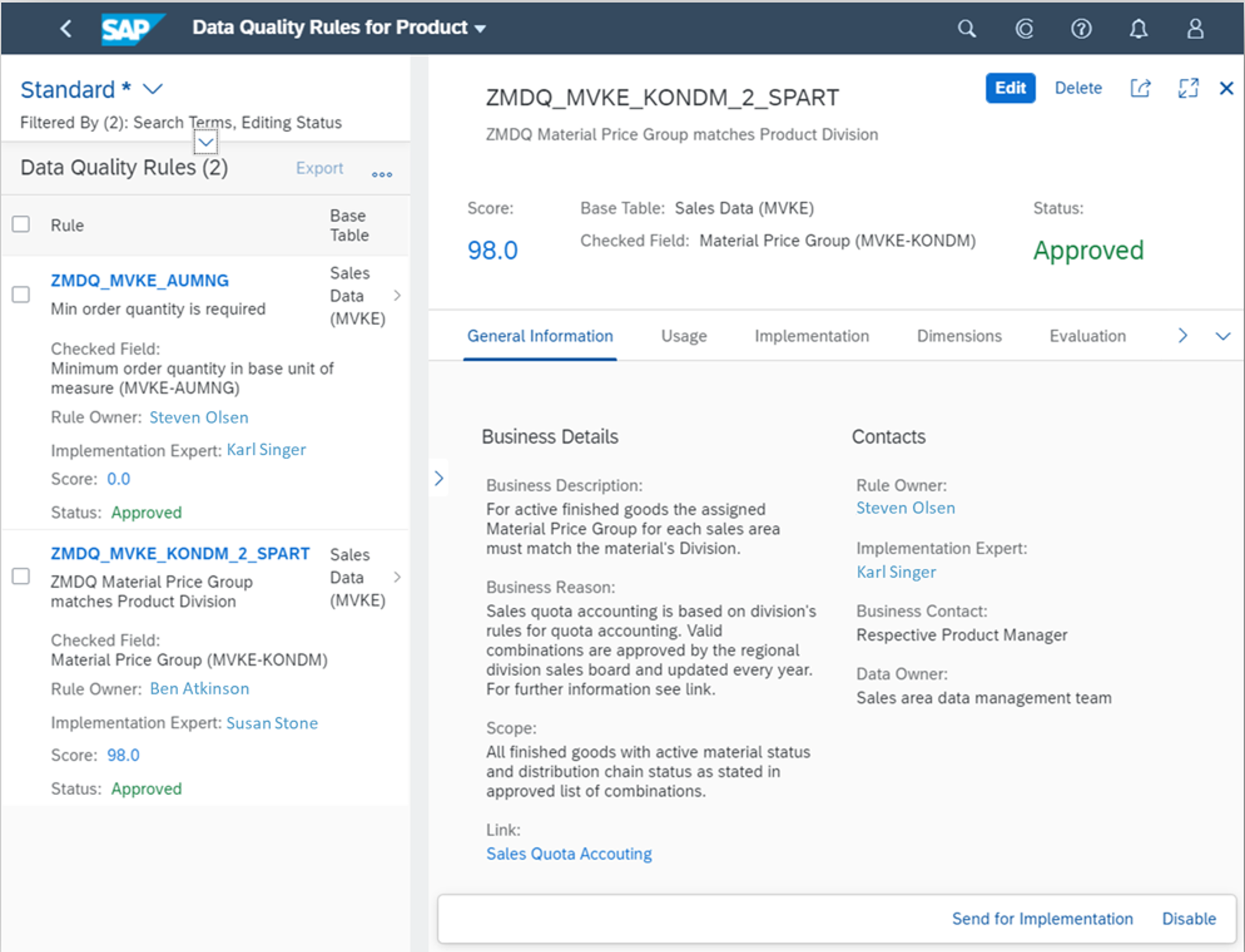
How to monitor your data quality?
Once the data quality rules are implemented, the system can perform ad-hoc or scheduled (ex. weekly, monthly…) evaluation runs. The evaluation run will check the data in your system against the quality rules.
In order to monitor the data quality trend, data quality rules can be grouped into dimensions and categories for higher-level KPI reporting.
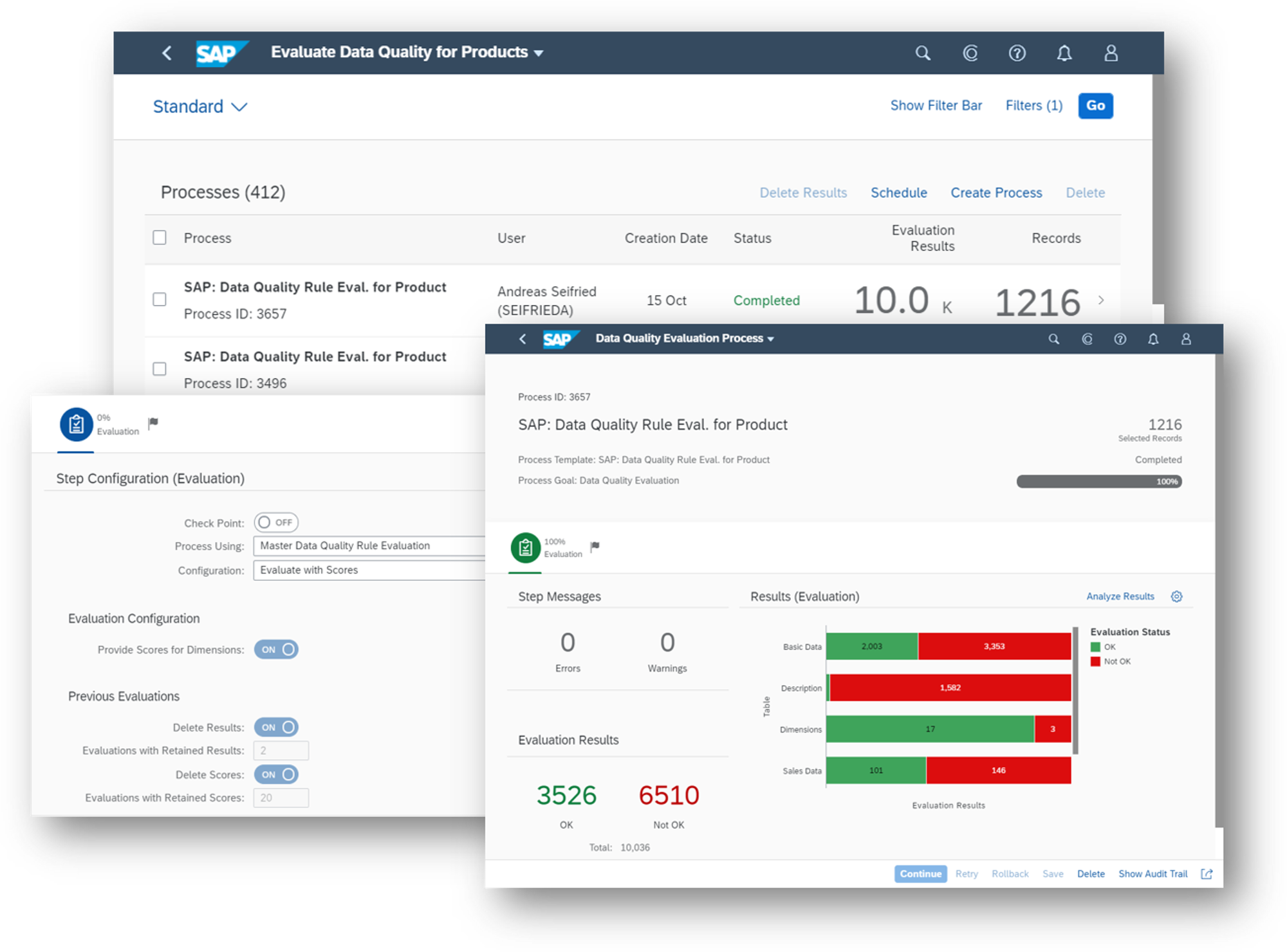
You can monitor and analyze your data quality trend via the analysis overview page. It is possible to click and drill down each measurement on the overview page to get even more details about your data and to identify the root causes of bad data.
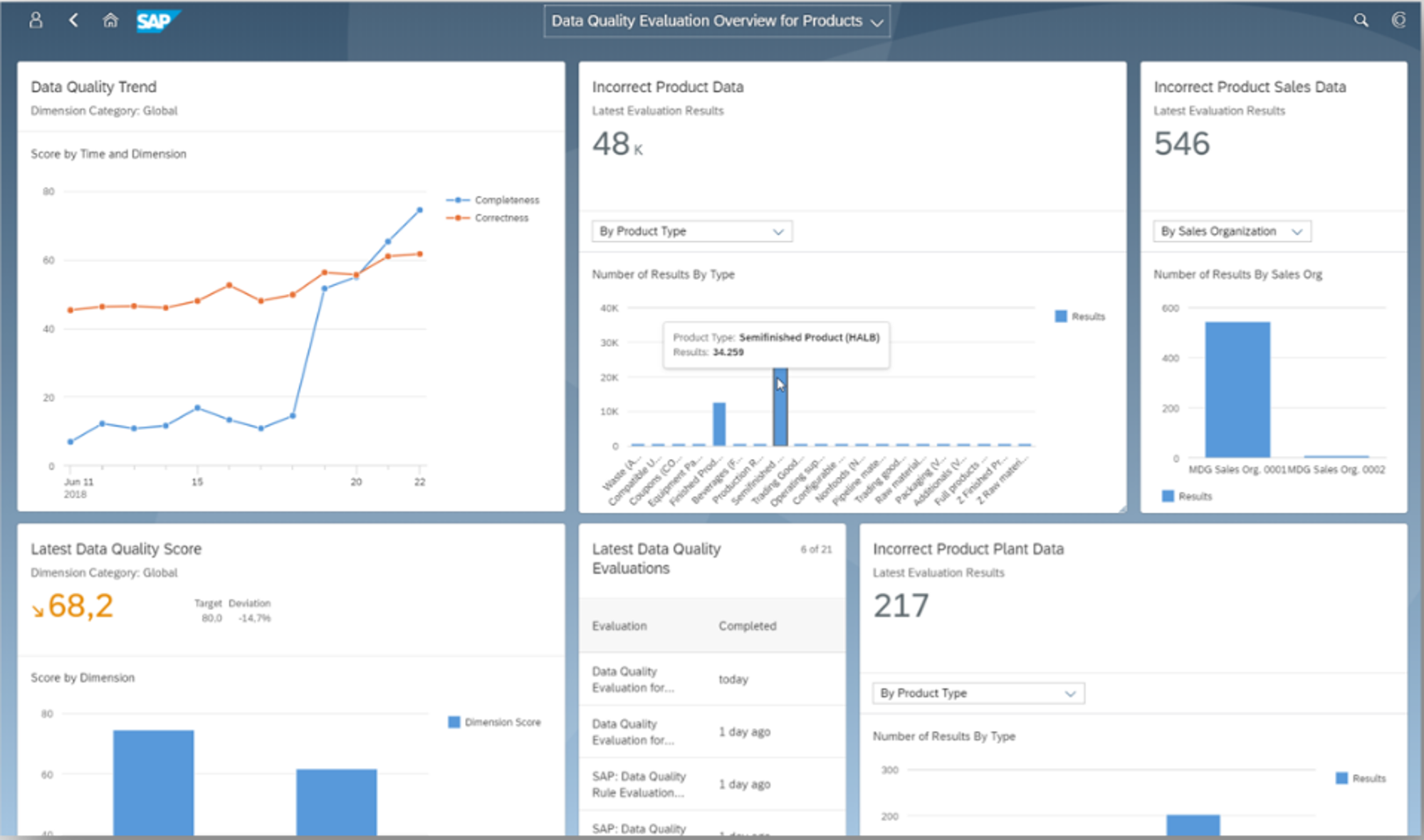
How to improve your data quality?
Evaluation runs can identify data that is not compliant with the defined quality rules.
From these results, you can start a single or mass processing process to remediate the data issues and improve the data quality immediately. Alternatively, you can delegate the correction to someone else by sharing your analysis result link. This link includes all your filters and settings.
It is also possible to export your evaluation results and related Products or Business Partners into an open office format (XLSX) for offline analysis and editing.
The result of your offline work can be imported later into the SAP MDG Mass Processing application.
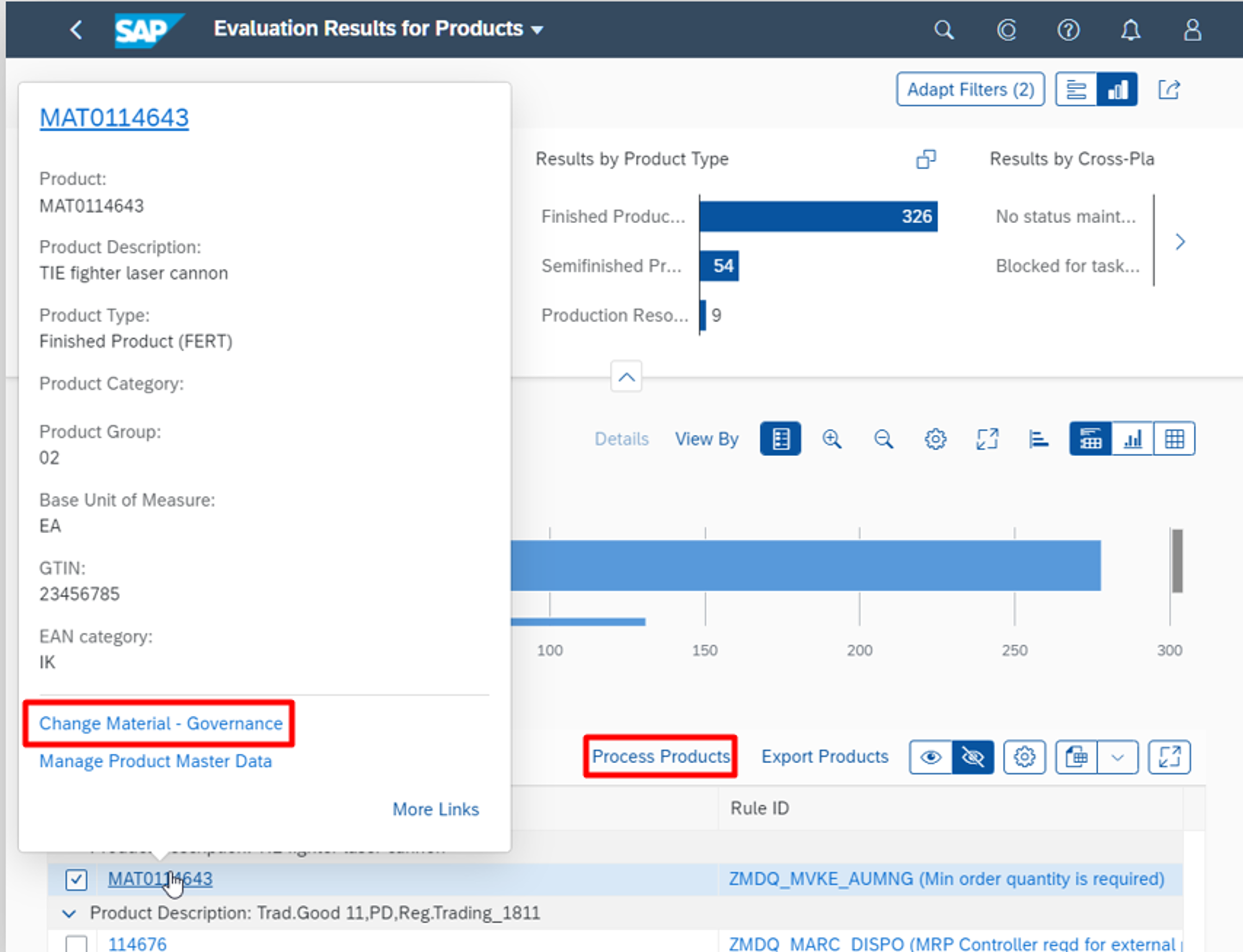
Tying it all together…
DQM enables collaboration between Business and IT in a single environment to establish and monitor master data quality. It offers an automated tool to quickly check master data against the defined quality rules and initiate the remediation activities via Single or Mass Processing. This eliminates the need for manually checking every record individually.
Currently, only validations are part of Data Quality Management (DQM). However, as part of SAP’s strategy, the derivations will be included in this framework, making DQM the One-Stop-Shop for Data Quality.
Should you be interested to find out more about Master Data Quality and Master Data Management, feel free to contact us!
For more information on this topic, fill out the form below.
One of our experts will get in touch soon!

Dylan Van Paemel
Senior SAP Master Data Consultant
Dylan is a senior SAP MDG consultant specializing in materials, business partner, and custom objects, with expertise in data quality management and mass processing. He holds SAP MDG certifications and has a broad skill set in SAP.
Featured articles






